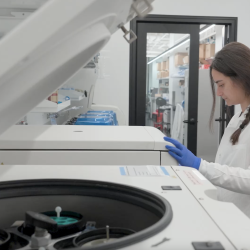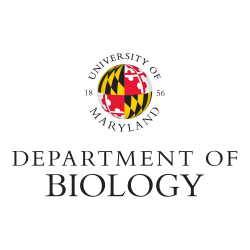UMD Senior Veeraj Shah Named a 2021 Rhodes Scholarship Finalist
University of Maryland senior Veeraj Shah is a finalist for this year’s Rhodes Scholarship, the world’s most prestigious award for international study. Shah is pursuing dual degrees in biological sciences with a specialization in neurobiology and physiology and individual studies majoring in health policy and technology. He was also a finalist for the Harry S. Truman and Marshall Scholarships.
“To make it to the national finals of both the Rhodes and Marshall Scholarships is nothing less than extraordinary. Anyone who achieves this, as Veeraj has this year, is self-evidently a rock star who is guaranteed to do great things,” said Richard Bell, a UMD professor of history who serves as UMD’s advisor for United Kingdom scholarships and fellowships. He also chairs the university’s U.K. awards nomination committee.
Shah was among 238 Americans selected for Rhodes finalist interviews held virtually this year. Only 32 were selected to represent the United States as 2021 Rhodes Scholars. In the 116-year history of the program, UMD has had two Rhodes Scholars—both from the College of Computer, Mathematical, and Natural Sciences: Fang Cao (B.S. ’15, biological sciences) and the Hon. Charles Thomas “Tom” McMillen (B.S. ’74, chemistry).
“I am honored to have been selected as a Rhodes finalist,” Shah said. “It is humbling to be in company with such accomplished students across the country.”
A native of Severna, Park, Maryland, and member of the Integrated Life Sciences program in the Honors College, Shah has pursued a wide variety of research, policy, service and entrepreneurial opportunities while at UMD.
He is co-founder and CEO of Chat Health, which uses artificial intelligence text messaging technology to improve access to preventive care services and promote health literacy among students and low-income communities.
“I began noticing how many UMD students were not getting access to accurate and real-time information on preventive care services and other health topics,” Shah said. “Knowing that the majority of college students access information via their cell phones, I reached out to friends in our computer science department with my idea for bridging this information gap.”
In just a few months, Chat Health debuted. And in March 2020, the company launched a COVID-19 prevention chatbot platform that has already been used by 4,000 individuals. The company is currently developing a text messaging chatbot platform to improve UMD student adherence to COVID-19 prevention protocols. They are also working to launch a Chat Health mobile app nationally.
But that’s not Shah’s only entrepreneurial venture. He also co-founded and serves as co-CEO of a second company called Vitalize App, which launched in January 2020 to improve the wellness of health care professionals using tailored mindfulness and resilience practices. The company has already participated in Terp Startup, a summer accelerator program for student entrepreneurs; raised $13,000 in grant funding; and built a team of 10 user-experience designers and backend app developers. The team is currently beta testing its app with over 100 clinicians and hopes to release it next summer.
“I am excited by the opportunity to use technology to help an overburdened population and, as a downstream outcome, improve the quality of care for patients,” Shah said.
In addition to running two companies, Shah is a health policy intern with the U.S. surgeon general, Dr. Jerome Adams. In this role, he wrote a Surgeon General’s Perspective on Suicide Prevention that will be published in Public Health Reports in January 2021 and contributed to the upcoming Surgeon General’s Report on Community Health and Economic Prosperity.
As a health and human services intern in the Office of the Prince George’s County Executive during his sophomore year, Shah identified gaps in the county’s early childhood services. He worked with the county’s chief health administrator to develop a policy framework addressing these gaps. The framework, which was approved by the county executive in late 2019, led to Prince George’s County becoming the first U.S. county to receive recognition as a UNICEF “Child Friendly City.”
Shah has also worked as a research assistant since March 2019 with Neil Sehgal, assistant professor of health policy and management at UMD, to understand how U.S. graduate student health plan offerings affect student health outcomes and investigate gender-based pay parities among U.S. physicians. He also interned as a business analyst at IBM Watson Health building artificial intelligence technologies for state Medicaid programs and conducted cancer research at the National Cancer Institute and the Johns Hopkins University School of Medicine.
He has authored five papers, including a first-author paper in the Journal of Applied Clinical Medical Physics, two papers in the International Journal of Radiation Oncology, Biology, Physics, and papers in the Journal of Neuro-Oncology and the American Journal of Health Promotion. He has submitted two additional papers for publication.
When he’s not working, Shah volunteers his time to help the UMD community and beyond. He served as the student member on the School of Public Health’s Dean’s Community Advisory Council and as a student member on the University Senate Research Council. He is also president of the student organization Public Health Beyond Borders, where he is currently leading initiatives to start partner chapters at other U.S. universities.
In his spare time, Shah enjoys playing the classical guitar, drinking coffee, boating and backpacking.
After he graduates from UMD, Shah plans to pursue an M.D./Ph.D. focused on developing and implementing digital health technologies to improve health care delivery and chronic disease management. As a health technologist, policymaker and clinician, he hopes to contribute to a future where access to safe, efficacious and cost-effective health care is universal.
###
Media Relations Contact: Abby Robinson, 301-405-5845, abbyr@umd.edu
University of Maryland
College of Computer, Mathematical, and Natural Sciences
2300 Symons Hall
College Park, Md. 20742
www.cmns.umd.edu
@UMDscience
About the College of Computer, Mathematical, and Natural Sciences
The College of Computer, Mathematical, and Natural Sciences at the University of Maryland educates more than 9,000 future scientific leaders in its undergraduate and graduate programs each year. The college's 10 departments and more than a dozen interdisciplinary research centers foster scientific discovery with annual sponsored research funding exceeding $200 million.








